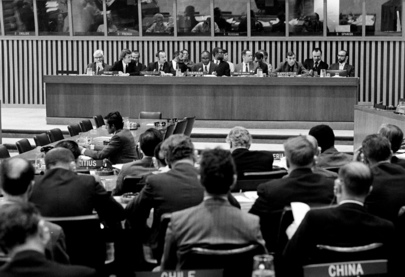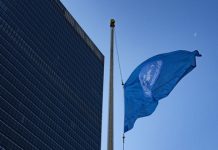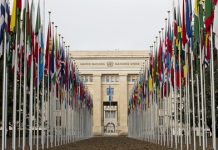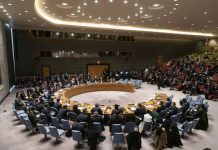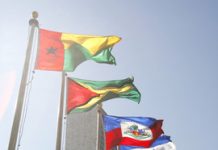Gaza remains at high risk of polio virus spread, warns UNICEF
The risk of polio spreading in Gaza remains high unless there’s an urgent action to address the serious health threat, UN agencies said on Wednesday.
“At least two rounds of [orally delivered polio vaccine] will be necessary to shut down transmission,” the World Health Organization (WHO) and UN Children’s Fund (UNICEF) insisted in an update.
That assessment came after vaccine-derived poliovirus type 2 was identified in sewage samples collected in late June from Khan Younis and Deir al Balah.
Three cases of paralysis were reported in late July in north Gaza, Deir al Balah and Khan Younis – but the cause is still being investigated, WHO explained.
For a mass polio vaccination to be successful in Gaza, the UN health agency and UNICEF insisted that humanitarian pauses need to be put in place.
Preparations for the campaign have been continuing after WHO chief Tedros Adhanom Ghebreyesus approved the release of more than 1.2 million doses of oral polio vaccine, to protect more than 640,500 children under 10.
Taliban rule has erased women from public life, sparked mental health crisis
Three years of Taliban rule in Afghanistan have erased women from public life.
That’s the stark message from UN Women, which said that since the de facto authorities seized power in August 2021, they had systematically targeted women and girls with decrees and statements, stripping them of their fundamental rights and autonomy.
‘The horrors have not stopped,” said UN Women Country Director in Afghanistan, Alison Davidian, who noted that Taliban edicts have denied girls from getting an education beyond the sixth grade and banned women from working for non-governmental organizations.
Ms. Davidian said that “no woman in Afghanistan is in a leadership position anywhere that has influence politically, either at national or provincial level”.
And she maintained that when women are engaged in the Taliban’s structures, “their roles are largely to monitor compliance of other women” with discriminatory decrees.
Echoing those concerns, dozens of top independent human rights experts on Wednesday condemned the “appalling and intensifying attack” on women’s and girls’ rights and freedoms in Afghanistan.
The rights experts who report to the Human Rights Council and who are not UN staff include the Special Rapporteur on the situation of human rights in Afghanistan, Richard Bennett.
He warned that in the last year, the Taliban had intensified its “system of institutionalized gender-oppression”, by introducing new discriminatory edicts and practices and implementing them with violence.
Extreme heat increasingly disrupting children’s health, warns UNICEF
Climate news now, and a warning from the UN Children’s Fund, UNICEF, that close to half a billion children live in areas that get at least twice as many extremely hot days per year as their grandparents.
New data crunched by UNICEF shows that one in five children – or 466 million – live in areas that experience at least double the number of extremely hot days compared to six decades ago.
The UN agency said that Mali, Niger, Senegal, South Sudan and Sudan are home to children who spend more than half the year in temperatures above 35 degrees Celsius – or 95 degrees Fahrenheit – that’s the threshold for extreme heat.
These and many other countries lack the infrastructure or services to protect their populations from the associated health risks which include stillbirths, low birth weight, pre-term birth and malnutrition, UNICEF said.
The UN agency also found that in 16 countries, children now experience more than a month of extremely hot days compared to six decades ago. In South Sudan, children face 165 extremely hot days a year now compared to 110 days in the 1960s, while in Paraguay, this figure has jumped from 36 days a year to 71.
Globally, children in West and Central Africa face the highest exposure and the most significant increases over time, according to the UN agency analysis.
Music composed and produced by Joachim Harris. All rights reserved
Source of original article: United Nations (news.un.org). Photo credit: UN. The content of this article does not necessarily reflect the views or opinion of Global Diaspora News (www.globaldiasporanews.com).
To submit your press release: (https://www.globaldiasporanews.com/pr).
To advertise on Global Diaspora News: (www.globaldiasporanews.com/ads).
Sign up to Global Diaspora News newsletter (https://www.globaldiasporanews.com/newsletter/) to start receiving updates and opportunities directly in your email inbox for free.


